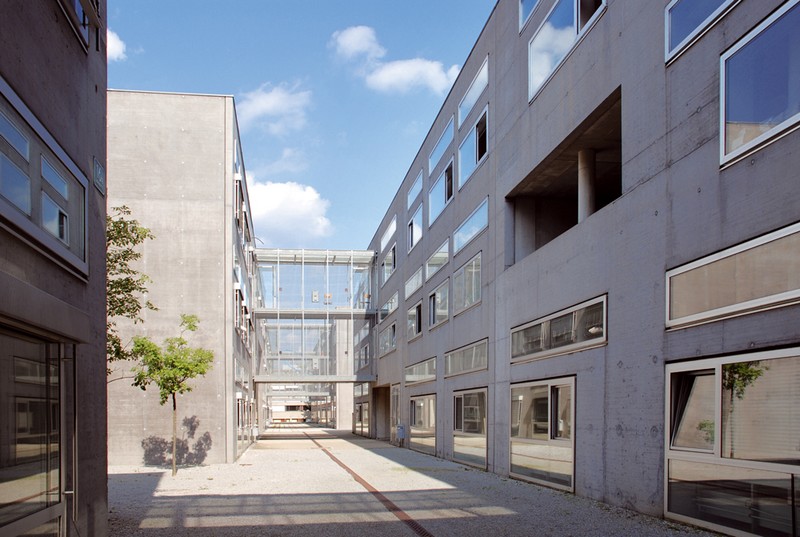PhD defense at the Medical University of Graz. So many houses, so many customs
In the world, everybody can observe something different that might be worth a try. I was invited to Austria's second-largest university for a Ph.D. defense and a lecture in Graz, the capital of Styria.
Before I tell you about my experience there, let me recall a small incident at an old concert. Zoltán Kocsis, whose name was a household word when he was alive, would, I hope, forgive me for telling it. During a break in a concert, someone in the company around him asked him if it was possible to be bored at an event like this. He immediately replied, "How much and how many times"!
Yes, you can get sleepy and bored at conferences and scientific lectures, and many people are lucky to have their mobile phone handy (sometimes it even rings.) But a scientific lecture should be as lively as a good concert!
Anyone who attends lectures will agree that you can wake up, not fall asleep, to a good lecturer and presentation, even if the topic is far beyond the scope of someone's narrow research field. Exceptionally good lectures and speakers are rare, just as world records cannot be achieved every day, but it is possible to help ensure that all participants in a scientific event, such as a Ph.D. defense, have as many positive experiences as possible.
Although I have participated in Ph.D. or D.Sc. doctoral theses defenses where all participants felt they were part of an exceptional event, my experiences in Graz showed me how to simplify and be more "listener-friendly" the formal scientific event of a Ph.D. defense without compromising its scientific aspects.
 The requirements for the candidate and the reviewers are similar to those in Hungary. The minimum requirement there is at least one first-authored international SCI-listed publication, and the reviewer must have neither a joint publication nor a joint work with the candidate, and must not have had any connection with the University of Graz Medical School, even in the PhD training. The review process is greatly assisted by the Doctoral Office, which checks that the formal requirements are met, and it includes the results of the plagiarism screening.
The requirements for the candidate and the reviewers are similar to those in Hungary. The minimum requirement there is at least one first-authored international SCI-listed publication, and the reviewer must have neither a joint publication nor a joint work with the candidate, and must not have had any connection with the University of Graz Medical School, even in the PhD training. The review process is greatly assisted by the Doctoral Office, which checks that the formal requirements are met, and it includes the results of the plagiarism screening.
There, the thesis is only sent electronically and the review is done in the same way, very similar to the review of an article. This is also indicated, among other things, by the options for deciding the fate of the thesis: it can be accepted as it stands; it can be accepted after minor corrections and modifications; or it can be a major revision, completely revised and the work resubmitted.
It is also an acknowledgment of the role and responsibility of the supervisor that he/she will also receive the critiques. It is general, that the team members will help to check not only that minor textual errors are corrected, but also that none of the requested changes are left out, and that all changes are included in the final version.
Once this has been formally checked, too, the candidate prepares for his/her presentation, and the reviewers collect the questions they will ask after the presentation. They do not have to read out a single line of the electronically submitted assessments, so there is no question of the same errors or suggestions being heard twice by the audience or referred to by a second reviewer. Why mention what has been corrected, and what is already in the past?
And the repository that collects Ph.D. theses, whether it contains books on its bookshelves or keeps all its treasures in the cloud, is a repository of corrected, thoroughly checked work, with, of course, the comments of the referees.
Here at home, in-house reviews and in-house referees are a great help in ensuring that the thesis submitted to the Doctoral Office is much better than the one they have refereed, but to the formal referees' objections and questions are answered in a written form sent to them and these will be read out but the thesis itself remains as it was.
Fortunately, at least the presentations in the defense already meet the requirements of the judging!
In Graz, the audience (about 30 people) and the three members of the jury were seated at a U-shaped table, which was a consequence of the given room, and the fact that we were not seated at a separate table "for the sake of form" was very wisely done.
The committee was introduced by the chairman (also the secretary of the event), and although none of us were employees of this university, it was limited to the name and the simple name of the place of work, so it didn't take two minutes and our candidate could start her 20 - 25 minute presentation. The reading of the biography, which is customary in Hungary, was omitted, but nobody missed it, as the members of the committee could read it ex officio and the others knew the speaker personally.
While the rules did not make this mandatory, they strictly stipulated that the duration of defense should be a minimum of 60 and a maximum of 90 minutes. Of this, 20-25 minutes should be for the presentation and at least 30 minutes for the question and answer part.
This was the most exciting part, as not only did the candidate not know the questions in advance, but the questioners had new questions about the presentation or an answer.
 The two referees had to start this exam followed by the chairman, even the supervisor had a question that was not prearranged question, it came to him during the presentation. Questions arrived from the members of the audience, too. In our country, a single question or comment is very rare, whereas there, it seems to be the norm.
The two referees had to start this exam followed by the chairman, even the supervisor had a question that was not prearranged question, it came to him during the presentation. Questions arrived from the members of the audience, too. In our country, a single question or comment is very rare, whereas there, it seems to be the norm.
I felt very lucky that we had an excellent candidate. The questions were sometimes very briefly explained with a literary reference, but without a lengthy introduction, and we had the answer, often supported by literary references.
When we exceeded the sixty minutes after about 25-30 questions and answers that were immediately and correctly worded, our President very wisely decided that we had met the requirements. He asked the candidate and members of the audience to go out into the corridor, but not to go far.
All three of us were largely satisfied with the candidate's performance, but to avoid any formal errors, we individually recommended that she be given the rating of excellent out of three options - failed, passed, excellent.
After we had signed the form, the chairman of the jury opened the door, announced the result to the candidate and the audience in the corridor, and congratulated the supervisor, too. Two people were perhaps even happier than the happy candidate. One was his supervisor - "I told you she was very clever!" - the other was Sowmya's brother, who had come from South India for his sister's big day.
What followed was pretty much the same as what happened here.
I know, it could have all been done in a much less enthusiastic way, and we have had - and still have - some defenses where the candidate is outstanding and everyone is happy. But despite the undoubted changes that have taken place in the last 10 years alone, it seems there is still room for change.
It may be consistent that we should retain the corrected paper, and it makes sense that the whole procedure is of a fixed duration. It helps to keep attention and interest if no two or more people are reading out their carefully written, often very instructive, but inevitably partially repetitive reviews, which may take longer to read together than the candidate's presentation.
It is true, that it is not easy to be examined in front of an audience, but it does make the candidate's knowledge evident, and those who are prepared deserve to prove themselves to those who are most important to them.
After all, this should be his or her day.





